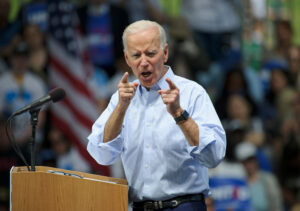In 2008, Zimbabwe’s suffering people had a glimmer of hope to lighten the dark decades during which Robert Mugabe and his ruthless ZANU-PF henchmen had bankrupted their once-prosperous country.
The Movement for Democratic Change won parliamentary and presidential elections and – though Mugabe rigged the latter and refused to go – opposition leader Morgan Tsvangirai agreed a power-sharing deal that offered some prospect of better times to come.
But an insidious legacy of Mugabe’s ruinous regime was about to add a new burden to the impoverished population – cholera. This deadly gastroenteritis is highly infectious, killing around five per cent of Africans who catch the disease, though the death rate is lower elsewhere. In Zimbabwe, the year of hope also saw the start of a major cholera outbreak that August which would become Africa’s worst for 15 years. The cause? Services like a clean water supply, sanitation and garbage collection had collapsed as a result of the Mugabe regime’s chronic mismanagement. Zimbabwe’s urban population had little choice but to drink any water they could find, though this was almost invariably contaminated by human waste containing cholera bacteria, which thrives in an aqueous environment. As city and town dwellers became widely infected, they spread the disease to rural areas by visiting relatives and repatriating cholera victims to their home villages for burial.
The epidemic spread like wildfire in the dying months of 2008, reaching a peak in December when the government belatedly declared a national emergency and appealed for international help. It even spilled over into neighboring countries. For the suffering Zimbabweans, weakened by prolonged under-nourishment and wide incidence of HIV and AIDS, the death rate was terrifying, averaging ten per cent and reaching double that in some areas of the country. The epidemic started a slow decline in 2009, but not before killing thousands.
When: 2008-2009
Where: Zimbabwe (also affecting parts of Botswana, Zambia, Mozambique and South Africa)
Death toll: Over 4,200 deaths were reported by mid 2009, probably representing a considerable underestimate of the actual figure.
You should know: The vituperative anti-British rhetoric that Mugabe’s government used to justify every setback in his beleaguered nation soon came in to play when cholera took hold. Information Minister Sikhanyiso Ndlovu claimed that the epidemic had been caused by a bio-chemical weapon attack that was designed to create a diversion ahead of an imminent British invasion.






















